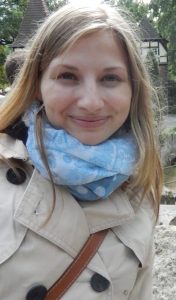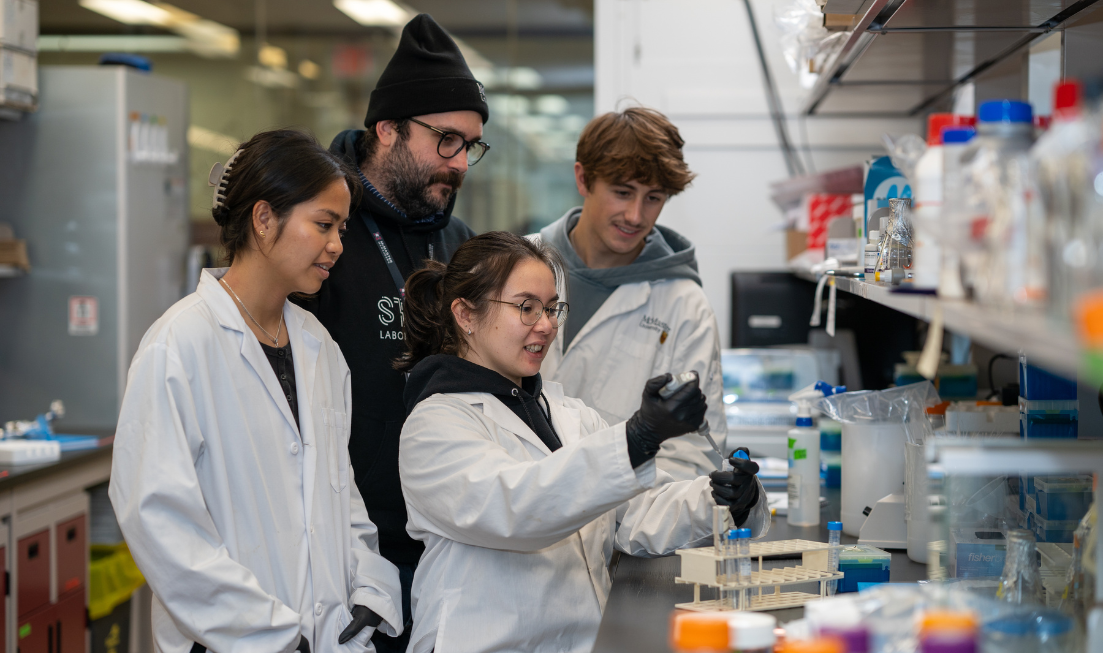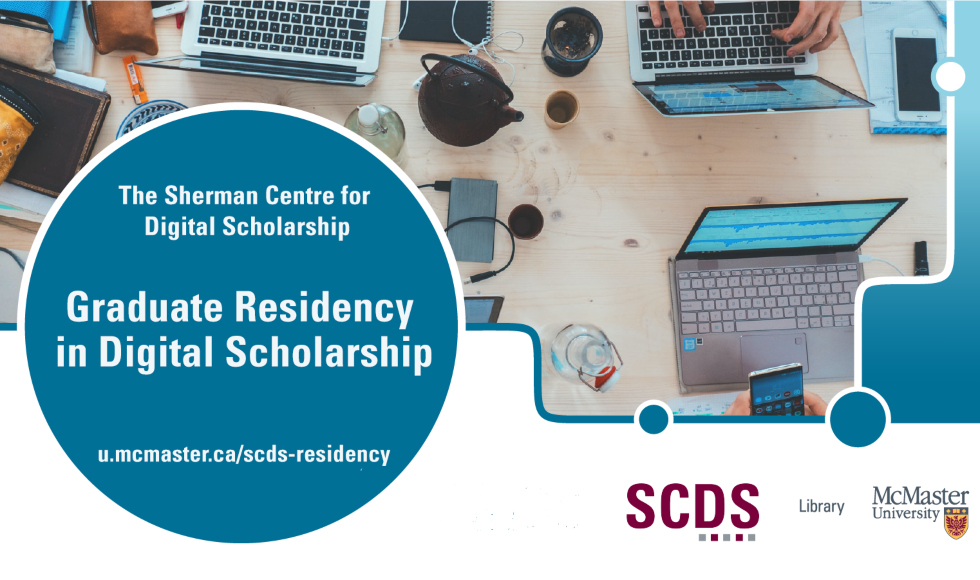Honing your skills through The Research Shop

While many graduate students hope to continue their careers in academia, others seek careers that will allow them to employ their skills in a non-academic setting.
 Chelsea Barranger, who recently completed her PhD in history, knows what that’s like. While working on her PhD in 2018, she heard about McMaster’s Research Shop as a place to gain valuable experience and networking opportunities.
Chelsea Barranger, who recently completed her PhD in history, knows what that’s like. While working on her PhD in 2018, she heard about McMaster’s Research Shop as a place to gain valuable experience and networking opportunities.
The Research Shop connects students at all levels with local public, non-profit and community organizations to work on collaborative research projects, exposing students to different ways of applying the research, communication and other skills they’ve honed throughout their education.
Barranger applied and was hired as a team lead: a student (usually a graduate student) who is paid a stipend to oversee a small team of students to conduct research. She’s stayed in the role, working on various projects, ever since.
“I knew early on that I did not want to be a professor; it just wasn’t what I was interested in,” says Barranger. “The Research Shop provides me with the opportunity to step outside my comfort zone, network with local community groups and learn new types of research. It’s really opened my eyes to different career opportunities going forward.”
Students apply to become part of the Research Shop, either as team leads or volunteers. Based on their skills and interest, selected students are matched to local community groups or NGO’s that have research questions they need answered. Those questions form the basis of a research project that’s conducted over one term by a small team of volunteers. Then, working with McMaster’s Community Engagement Office, which oversees the Research Shop, the team presents their findings to the organization.
Over the two years that Barranger has worked with the Research Shop, she has led research on topics as diverse as a review of existing education programs and supports for blind and partially sighted Canadian students for the Canadian National Institute for the Blind to the creation of an events manual for the Gibson Lansdale Neighbourhood Association.
One particular aspect of the program that Barranger finds appealing is the interdisciplinary nature of the teams. One team, for instance, could include students from engineering, business, health sciences and humanities.
“You may learn what transferable skills your humanities degree has given you, which may not always be obvious when you’re knee-deep studying the history of British war brides, or analyzing early American literature,” says Barranger. “The Research Shop projects opened my eyes to the tangible skills I’ve gained, like effective and accessible writing and the ability to analyse complex and nuanced public issues, and use these skills to provide recommendations that may make a meaningful difference in my community. There’s a ton of value in that, which we don’t always get to see through our day-to-day studies.”
For Barranger, the Research Shop has also kept her busy during the COVID-19 pandemic, as alumni are permitted to work with the Shop for up to one year after graduation. While she’s still looking into opportunities for her post-Research Shop career, she says her experience there has not only provided her with networking connections and useful, hands-on experience and skills for her resume, it’s changed her career path.
“I’m now really interested in finding a career where I can use my research skills to influence positive impacts for communities, particularly in the area of education and how students learn. I know now I have a lot of skills I can bring to this area thanks to my experience at the Research Shop over the last two years.”
Research, Skills-building, Student life, VolunteerRelated News
News Listing

Turn your ideas into reality with the Digital Society Lab Hack
Competitions and contests, Skills-building
December 9, 2024

McMaster earns top spot for graduate student research intensity in annual rankings
Community, Research
December 9, 2024

Applications are open for graduate residency at the Sherman Centre
Research, Skills-building
June 20, 2024
